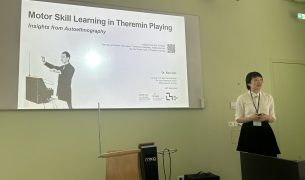Imagine You’re walking into a medical facility, and a robot with a 99% accuracy rate is diagnosing patients. Meanwhile, your bank alerts you to potential fraud before you know something’s wrong. It sounds like science fiction, but these innovations are already happening, thanks to AI and software engineering.
In today’s data-driven world, these skills are no longer just excellent to have; they’re essential. But it’s not just about creating more intelligent tech; it’s about integrating AI in ways that tackle real-world challenges. So, why are these skills so crucial for future professionals? Let’s break it down.
AI’s Role in Shaping Industries
Despite resistance in specific industries, AI is everywhere, and its impact is undeniable. In healthcare, for instance, AI is helping doctors make faster, more accurate diagnoses by processing vast amounts of medical data at lightning speed. In finance, machine learning models predict market trends and identify fraud, offering security and efficiency that humans alone simply can’t match. Meanwhile, AI is at the core of innovations like autonomous vehicles and personalized user experiences in the tech world, driving new possibilities. But AI doesn’t just make industries smarter; it’s also a catalyst for tackling global challenges.
For example, AI is transforming the energy sector by optimizing energy consumption and improving the efficiency of renewable energy sources. AI algorithms can predict energy demand more accurately, reducing waste and ensuring that renewable energy systems like solar and wind operate at their peak. This ability to efficiently manage energy use cuts costs and plays a crucial role in reducing carbon emissions and combating climate change. It would be irresponsible not to point out that harnessing this potential requires more than just technical expertise; it demands a deep understanding of the ethical and sustainable integration of AI systems.
Why Software Engineering is the Backbone of AI
As powerful as AI is, it needs a solid foundation to function effectively. This is where software engineering plays a pivotal role. Think of software engineers as the architects who design and build the frameworks that allow AI to thrive. Whether developing algorithms, coding AI systems, or integrating AI into existing technologies, software engineers are crucial for turning AI into a tool businesses can use to solve real-world problems. The key to unlocking AI’s potential in industries like healthcare, finance, and sustainability is understanding how to design, develop, and manage complex software solutions that seamlessly integrate AI technologies. However, today’s software engineers must also navigate the challenges of AI implementation, including addressing algorithms’ biases, ensuring AI’s ethical use, and considering the environmental impact of AI systems.
Why Now is the Perfect Time to Gain These Skills
The demand for dedicated professionals with AI and software engineering expertise has never been higher. Companies seek individuals who understand how to develop software and use AI responsibly, ensuring that their solutions are not only innovative but also ethical and sustainable.
Finally, as industries rely more on data and AI-driven technologies, the need for professionals who can create, manage, and optimize these systems is increasing across all sectors. For students, now is the perfect time to dive into these fields. By gaining expertise in software engineering and AI, future professionals will be positioned to lead in the industries shaping the future. With a focus on sustainable development, AI skills can be used to create solutions that benefit both businesses and the planet, ensuring a future that is both technologically advanced and environmentally conscious.
Ready to shape the future of innovation? Because the world of AI and software engineering is waiting for the next generation of leaders to step in.





















